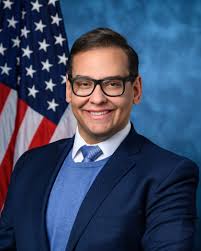Understanding the Controversies Around George Santos

Introduction
George Santos, a Republican Congressman from New York, has garnered national attention since his election in 2022, primarily due to the numerous allegations of misrepresentation and controversy surrounding his background. His case has sparked discussions about ethics, accountability in politics, and the implications of misinformation in public service.
Controversies and Allegations
Santos has faced multiple accusations regarding the accuracy of his resume, including claims about his education, employment history, and even personal anecdotes. Reports have revealed discrepancies in his biography, leading to serious questions about his integrity as a public official. For instance, Santos claimed to have graduated from Baruch College, yet the institution has no record of his attendance.
Additionally, investigations have surfaced concerning financial irregularities in his campaign financing. Santos reported a significantly inflated amount of personal wealth, raising eyebrows among watchdog groups and prompting inquiries from federal authorities. These allegations of financial misconduct highlight the urgent need for transparency in political funding and adherence to campaign finance laws.
Political Reactions
The response from fellow lawmakers and constituents has been a mixed bag. While some Republican leaders have distanced themselves from Santos, citing the importance of upholding ethical standards in governance, others have continued to support him, framing the allegations as politically motivated attacks against a rising star in the party. This divide showcases the complexities within the party dynamics and the varying thresholds for accountability among its members.
Future Prospects and Significance
As investigations continue into Santos’s activities, the political landscape remains watchful. The potential repercussions of these allegations may impact his future election campaigns and possibly influence voter sentiment, especially in the diverse and politically active district he represents. The outcome of this situation could set a precedent for how similar cases are handled in the future, emphasizing the importance of truthfulness in public office.
Conclusion
George Santos’s case serves as a cautionary tale about the critical need for honesty and integrity within politics. As voters become increasingly skeptical of their representatives, issues of trust and verification will likely become even more pronounced. Observers should remain informed about the ongoing developments in Santos’s case, as they could have wider implications for political accountability and the expectations of public servants.









